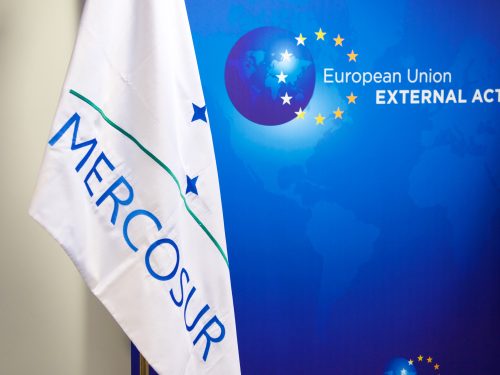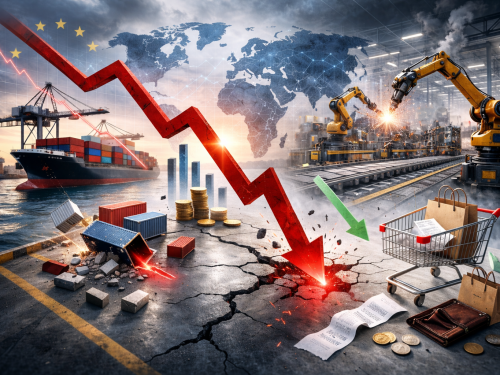News
Share on
On 13 March in Verona, the "Industry Stakeholder Conferencefirst official interaction with the G7, organised by Confindustria in conjunction with the G7 ministerial meeting on 'Industry, Technology and Digital', which was addressed by the Minister of Enterprise and Made in Italy, Adolfo Urso, ed Emma Marcegaglia, B7 Chair. At the centre of the agenda are the opportunities posed by the data economy and digital technologieshow to strengthen cooperation among G7 countries in sharing codes of ethics and operational standards for AI, minimising the risks associated with abuse and increasing the potential of AI in business competitiveness.
This B7 also introduces an important novelty: coinciding with the ministerial appointments on the four priority topics on the agenda, a business world summit will be held in which institutional representatives will also participate. The aim is to bring the two worlds together not only at the end, on an overall document, but gradually in the various stages leading up to the G7 Summit in June. This new method of dialogue started today in Verona, on the topics of industry and AI, and will continue in Turin, at the end of April, with energy.
For many influential CEOs, senior representatives of business organisations from G7 countries and international companies, it was an opportunity to discuss the key factors influencing productivity and industrial competitiveness in a rapidly changing global economy. The G7 countries represent 775 million consumers, with more than 3.5 million member companies of the individual country confederations and over 30 million active companies, their economies contribute 43% to global GDP and over 30% of the value of global trade in goods and services. The Group of Seven, by numbers and statistics, once again confirms itself as a major player in the global chessboard, also in terms of investment in innovation and AI.
"Digitalisation is crucial for all industries, in the private as well as in the public sector: as B7 we will strive to promote digital competences beyond the boundaries of companies and reach out to public administrations as well, in order to strengthen the security of data access and provide businesses and citizens with more efficient and safer services," stressed B7 Chair Emma Marcegaglia. "We are aware of the risks associated with AI and the G7 is committed to developing harmonised codes of ethics. This is a decisive step: the B7 is ready to develop policy recommendations to enable AI applications to unfold their full positive potential, making our countries' industry stronger and more competitive'.
On the occasion of this event, Confindustria and Deloitte, the project's only knowledge partner, realised the Note B7 Flashidentifying data and priorities in the artificial intelligence market.
Artificial Intelligence: $946 billion global market expected by 2030
The Artificial Intelligence market could reach $373 billion in 2024 and $946 billion by 2030. In particular, the market value of Machine Learning ($528 billion), generative AI ($207 billion) and AI applications to robotics ($37 billion by 2030) would grow the most. As for the impact on the different regions of the planet, it is estimated that in 2030 the AI market will reach USD 202.5 billion in Europe (leveraging 8.8% of GDP), USD 237 billion in the US, USD 105 billion in China and USD 15 billion in India.
Digitalisation: investments of 3.4 trillion are planned by 2026
A critical factor increasingly affecting the manufacturing sector is digitisation: in 2022 in Europe (including the UK) 69% of manufacturing companies adopted advanced digital technologies in production. The figure rises to 98% in the average of Germany, Japan, the UK and the US. In 2023, the most digitally mature companies recorded 6% more EBIT than the least digitally mature ones. Against this backdrop, global investments - public and private - in digital transformation are expected to reach USD 3.4 trillion by 2026, with a CAGR of 16.3% from 2023.




